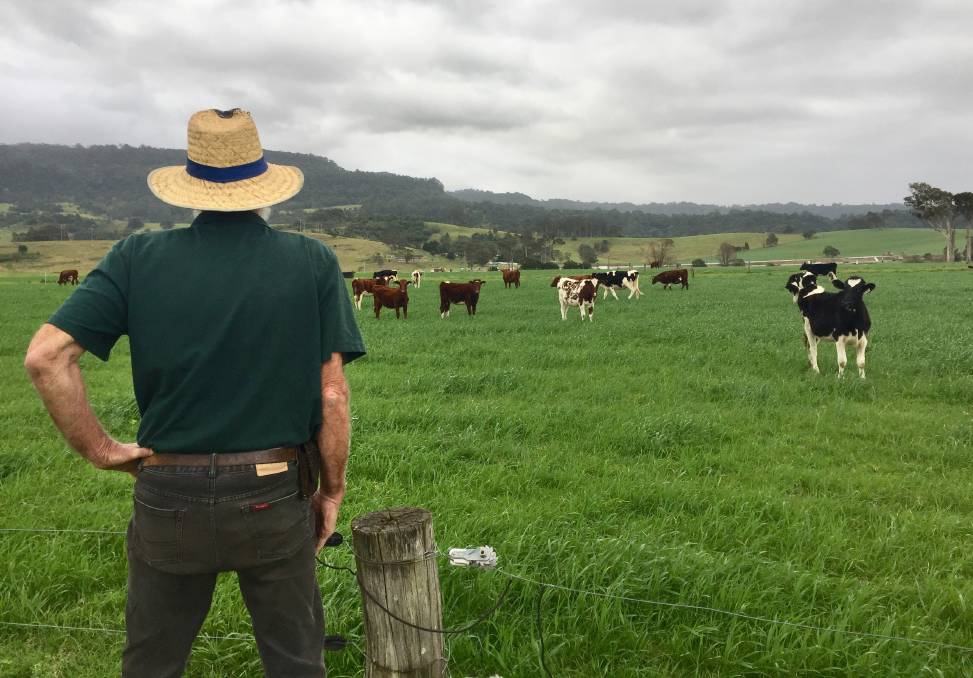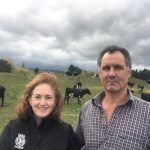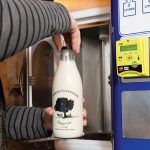
For dairy scientists, a question might be something like, ‘how effective is this drug at treating viral pneumonia?’
We usually start off with some pre-conceived idea about the answer, like, ‘many animals with the disease died from massive lung inflammation, so if we give them a drug that stifles the immune system, it will increase their chances of survival’.
The fancy word for these explanatory ideas is ‘hypotheses’.
However, we’re also aware that we might be completely wrong about this (otherwise, why are we researching the topic in the first place?).
There can be alternative possibilities, like, ‘the animal’s immune system is preventing the infection from spiralling out of control, so if we give them this drug, their likelihood of dying will actually increase’ or it could be something completely out of left field, like ‘the action of this drug interacts with symptoms of the disease to produce a third, utterly unexpected side effect like sudden heart failure’.
So, it’s really important that we test our hypotheses by running experiments and collecting data.
We have to be critical of our ideas, which is easier said than done.
It’s more fun to be critical of other people’s ideas and then to feel wounded and defensive when the same is applied to us (yes, scientists are people too!).
But sadly, until we collect the data, it’s all just guessing – no matter how neat the hypothesis may be, or how much we want something to be true.
Working as a dairy vet, I used to run into farmer-scientists all the time.
Farmer-scientists are living proof that you don’t need a scientific degree to have a burning passion for science.
They’re keen observers with questions that are begging to be answered, like, ‘if I feed this expensive supplement, will it actually improve my cow’s fertility?’ or ‘if I give them another PG shot, will I achieve a better conception rate?’ or ‘if I use this vaccine, will I get less pinkeye in my calves this year?’
Farmer-scientists know that you can’t just make up explanations for things and expect them to always be right.
They recognise that humans are fantastic at finding patterns and logical connections, even when they may not actually be there.
And, unlike regular research scientists, farmer-scientists happen to have the opportunity to run experiments on an everyday basis, with their own test subjects and treatments at their disposal – so why wouldn’t they try things and see what works?
Unfortunately, one challenge for farmer-scientists is that they lack experimental assistants.
Universities have entire departments of people whose job it is to make sure that your study design makes sense, or to do the statistical analysis, or to bounce ideas off.
This is unfortunate because it’s easy to make mistakes which can invalidate your results.
I remember, as a research student, being forced to abandon experimental data because of poor study design.
Knowing that you’ve thrown a year of your life away on something that you didn’t think through properly is about as bad as having a calf die on you just after giving it it’s last bag of fluids.
So, for the next few articles, I want to talk, scientist to scientist, about some of the principals of study design. Let’s talk about chance, uncertainty, bias, and placebo.
These can be really difficult concepts to grasp – even for people whose entire job relies on understanding these topics.
But they’re the key to running better on-farm trials and to get the answers that we’re looking for – so hey, let’s tackle them here.
Most on-farm projects I’ve seen have been ‘experimental trials’, which compare what happens before and after you introduce an intervention or treatment.
This makes sense – if you’re going to do something that will take more work or to buy a product which costs a lot of money, you want to know if it’s going to work for your farm.
However, an experimental trial which is not designed appropriately can be worse than no trial at all.
This is because we can come to conclusions which are not supported by the data – but we might feel a lot of confidence about the results.
This can lead us to make expensive but inappropriate choices, or to get really confused when brilliant outcomes in one year become mediocre in the next one.
Sometimes uncertainty is appropriate.
Sometimes confidence is not our friend.
So, our first cow in the race will focus on ways of setting control groups for your on-farm trial.
Stay tuned and join us next month as we cover subject selection, randomisation, and how to make fairer comparisons between experimental groups.
*Ee Cheng Ooi is a cattle veterinarian and fertility researcher working with the animal health team at Dairy Australia. All comments and information discussed in this article are intended to be of a general nature only. Please consult the farm’s vet for herd health advice, protocols and/or treatments that are tailored to a herd’s particular needs.

























